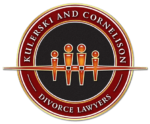A Nutshell Comparison

Mediation
Mediation – the first structured divorce settlement process to come along – provides in-meeting negotiation guidance to disputing parties.
The parties meet with a neutral and impartial person (a mediator) who helps them communicate with one another in a levelheaded manner that disputants typically find difficult to achieve on their own.
Mediators are trained to manage and defuse hostility and to keep negotiations headed in the right direction. They are able to prevent the participants’ personalities or emotional outbursts from getting in the way of settlement.
Mediators have no power to make decisions; their role is simply to help the parties create their own mutually acceptable resolution. In doing so, they use a variety of persuasion techniques that create and maintain a negotiation climate that is conducive to settlement.
IN MEDIATION, THE PARTIES STILL NEED A LAWYER TO GO TO COURT.
If the parties are successful in mediation, the mediator advises them to retain their own attorneys to review the terms of the mediated Agreement and verify that it is fair, or that it indeed says what the parties think it says. Once they are convinced that it is in their interests to finalize their agreement, at least one of them must hire a lawyer to shepherd their divorce through the court system.
Collaborative Law
Collaborative law came along next. It is another form of assisted negotiation; but, instead of a mediator, the parties each have their own lawyer on the scene to guide their settlement discussions.
Collaborative lawyers provide legal services that differ from traditional legal services. They commit to helping the parties reach an out-of-court settlement and limit the scope of their employment to that of “settlement lawyers” only. They perform the bulk of their legal work privately at in-office settlement conferences with both attorneys and both parties in attendance.
COLLABORATIVE LAWYERS CANNOT GO TO COURT IF THE PARTIES ARE UNABLE TO REACH A SETTLEMENT.
The parties and their lawyers sign an agreement to work together toward reaching a settlement, and the lawyers agree they will not go to court if the parties do not reach a settlement.
If one or both of the parties chooses to let a judge decide their case, both collaborative attorneys’ services are terminated and the parties must hire new attorneys to go to court with them.
Unlike mediators, collaborative lawyers are not neutral and impartial. They clearly represent the interests of their client only; but they do so in a non-threatening and settlement-friendly fashion.
Collaborative law is almost like mediation with two opposing (but nevertheless helpful) mediators in attendance.
Cooperative Divorce Law
Until recently, cooperative divorce law was a term that we used to describe sensible and “friendly” divorces that took place without the direct influence of either mediation or collaborative law.
Today, it is rapidly emerging as our third alternative dispute resolution model, complete with its own structure and protocol.
COOPERATIVE DIVORCE LAWYERS CAN GO TO COURT IF THE PARTIES ARE UNABLE TO REACH A SETTLEMENT.
Cooperative divorce attorneys also focus on settlement and using four-way settlement conferences, and they generally perform the same work as collaborative lawyers, but cooperative lawyers are not precluded from going to court if the parties are unable to reach a settlement.
Comparison Summary
Divorce mediation is where the parties attend settlement meetings with a neutral and impartial third person who helps them resolve their dispute in a non-confrontational, respectful, and civilized manner.
Collaborative divorce is where the parties hire separate lawyers and all four attend settlement meetings to help the couple resolve their dispute in a non-confrontational, respectful, and civilized manner.
The lawyers are settlement lawyers only and are not permitted to go on to court if the parties are unable to reach a negotiated settlement.
Cooperative divorce is where the parties also hire separate lawyers and all four attend the same settlement meetings as in collaborative law. The lawyers are not required to take the non-confrontational training that collaborative lawyers take, but many cooperative lawyers are also collaborative lawyers and mediators. The big difference is that the cooperative approach permits the attorneys to go on to court with their clients if they do not reach a negotiated settlement.
For More Information:
- 6 Divorce Law Myth Busters
- 9 Things to Consider at the Start of Your Divorce
- Grounds for Divorce (The Scoop on No-Fault)
- Child Support
- Spousal Support (Alimony / Maintenance)
We welcome hearing from you and we invite your questions. There is no obligation. No one will ever know that we spoke or what we discussed. Everything you say is privileged, confidential, and completely classified. We do not maintain a mailing list and will not contact you unless you ask us to.
Calling us is easy. Ask for Richard or Kari (Oak Brook 630-928-0600), or email us at jk@illinoislegal.com or kc@illinoislegal.com.
If we are in court or in a meeting when you call, one of us will personally get back to you as quickly as possible. We are extremely discreet with callbacks and reply emails. Just leave your name and a secure email address or personal cell phone number.
Richard and Kari are staunch advocates of the non-court approach to divorce, and are also active and seasoned litigators with over 60 years of combined trial experience in the Illinois divorce courts of Cook, DuPage, and Will counties.
